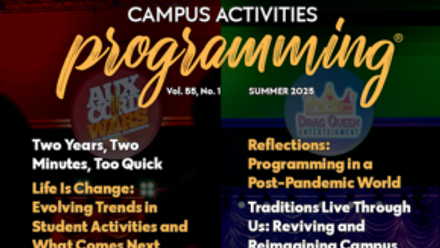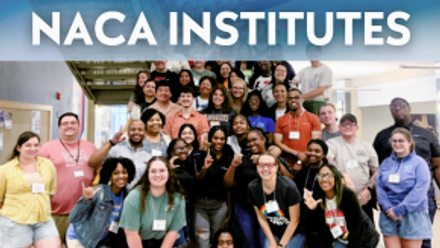Discomfort, Offense, Trigger: Understanding and Managing Student Responses to Comedy - JCAPS Vol. 1 Issue 1
COMEDY, LIKE HIGHER EDUCATION, is an institution forged from and heavily influenced by tradition. Performers readily recite their influences, drawing a clear line between their idols and the art they currently create onstage. However, because culture and norms surrounding comedy are considerably more malleable than those surrounding higher education, a previously symbiotic relationship has become harder to navigate with understanding.
In one Instagram post, Roy Wood, Jr. managed to encapsulate the current challenges these norms highlight between comedy and campus environments. The comedian, Daily Show correspondent and NACA Hall of Famer shared a series of texts to a comic playing his first college campus. Among the gems within the series are “material wise. [sic] always ask for what hte [sic] language parameters are (if you care about getting rebooked) otherwise be yourself,” “don’t go over your time. but DEFINITELY don’t go under your time,” and “read the campus paper when you get to the venue. Or read it online. It’s a treasure trove of local material and things you can use as natural segues into stuff you already have jokes about.”
The advice depicts someone who has, in the lexicon of performance, “paid his dues” and wanted to provide a strong performance. It also reflects generational differences that are being blamed for the dread many performers feel in this environment.
Once viewed as fertile ground for comedians to refine skills and build fan bases, campuses have become a symbolic battleground for the divisive use of language and identity politics. And yet as researchers steeped in this world, we are hopeful — for comedy in a larger sense and its future on campuses.






